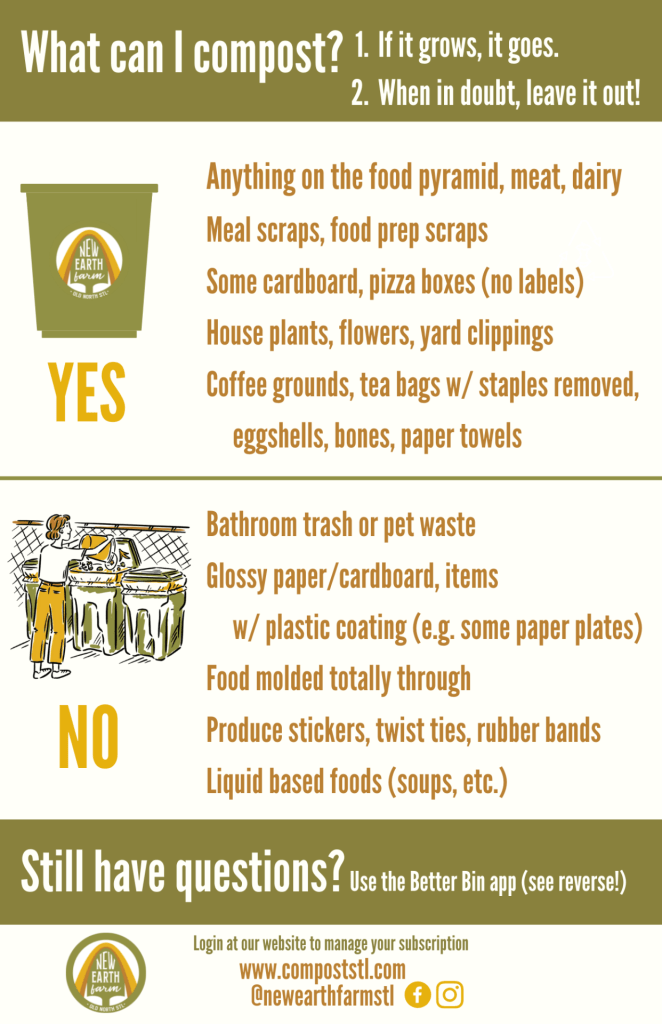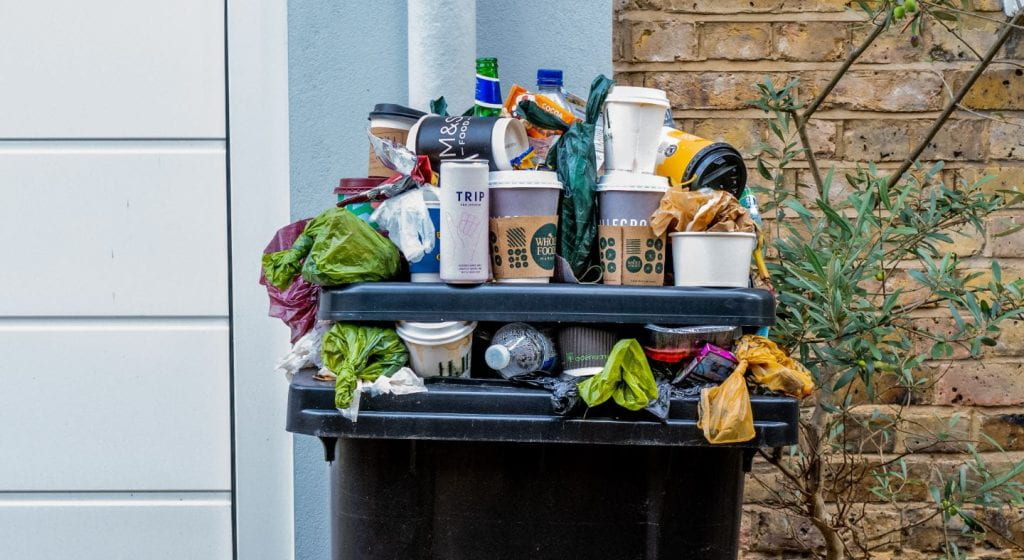After many requests by students and staff, WashU’s School of Medicine is excited to announce a pilot post-consumer compost collection program! While back-of-house compost has been collected from the kitchens for many years, the pandemic paused efforts to expand the School of Medicine’s waste diversion programs. WUSM will be “pressing play” in February 2023 with the roll out of a three-month post-consumer compost collection pilot program. During this time, compost collection will be available at Farmstead and Shell Cafes. WUSM will be working with New Earth Farm, a local Known & Grown certified farm that offers residential compost pick-up in the St. Louis Metro area.
The pilot program’s success will be measured by a less-than-5% contamination rate, public reception, and an increase in waste diversion. If successful, composting will be implemented permanently at Farmstead and Shell Cafes, and expansion to other areas on campus will be explored.
What can I compost?
At Farmstead and Shell, the most common compostable items include food waste , clamshell to-go boxes, and napkins. Check out New Earth Farm’s compost guide here – yes, you can compost meat!
New Earth Farm is not accepting liquids at this time, so please dispose of liquids in a sink or landfill bin.
What should I recycle?
Recyclable items include metals, paper, glass, and plastics with the numbers 1-5 on the bottom.
Landfill items include plastic utensils, plastic #6, snack bags, condiment and creamer packaging, wrappers, hot coffee cups, produce stickers, twist ties, rubber bands, and Styrofoam. Please pay special attention to plastic utensils!

Why is waste sorting important?
New Earth Farm and other compost service providers have a low tolerance for contamination. If a load contains more than 5% contamination, New Earth Farm will be unable to utilize it. The load will be dumped in the landfill, defeating the purpose of collecting compost in the first place!
What can I do to help?
To ensure the pilot program’s success, the sustainability team is looking for volunteers to help educate the WUSM campus community and reduce contamination. While helpful signage will be widely posted, demonstrating waste sorting and having peers available to ask questions has proven to be much more effective training. If you would like to be a part of the educational outreach campaign to encourage people to properly sort their waste at Farmstead and Shell, please sign up here or reach out to WUSM Sustainability Coordinator, Heather Craig. No experience is necessary – we will teach you everything you need to know! Volunteers will receive a free meal at their shift location each time they volunteer.
While initiating compost collection at the WUSM campus is exciting, composting and recycling at dining locations must not overshadow the need to first reduce our individual waste. It is far more important to opt for reusable items (plates, water bottles, cups, straws, and utensils) whenever possible to reduce overall waste.
Why do we need to compost?
Composting diverts waste from landfills, cuts greenhouse gas emissions, strengthens soil, promotes healthy plant growth, AND reduces the need for pesticides and synthetic fertilizers. The list goes on and on! Still need to be convinced that it is important to compost? Learn more about why composting is a critical initiative for communities like WashU by watching this video!
